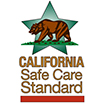Ebola: Partnering With Healthcare Workers is Step One
It comes as no surprise in our global transportation age that the Ebola virus — once isolated to Western Africa –would eventually reach the United States. But this week we were deeply concerned by the diagnosis of not just one, but two healthcare workers at Texas Health Presbyterian Hospital in Dallas. Now, our challenge is to share up-to-date information and collaborate in the way that all public health crises demand, to contain the Ebola virus and keep front-line healthcare workers and their patients healthy.
We urge employers to take responsibility for worker, patient and consumer safety, and institute protocols and a tailored worksite plan that don’t just meet, but exceed current recommendations from the U.S. Centers for Disease Control and Prevention (CDC).
Effective worksite plans should:
- In consultation with front-line healthcare workers, develop detailed, site specific protocols and policies that corporate most recent CDC guidance and OSHA requirements.
- Ensure that front-line workers have the necessary personal protective equipment and supplies.
- Take into account the nature of caring for highly infectious patients and handling contaminated materials and be staffed accordingly to limit exposure to workers and patients.
- Be tested with front-line workers at each step and include “what-if” scenarios to prepare for alternatives before any safety protocol is implemented.
- Provide extensive hands-on training of advanced infection control and isolation techniques for all workers who could potentially be exposed to the virus. It takes practice to properly apply and remove the head-to-toe protective gear that environmental service workers use when cleaning or healthcare workers wear when caring for patients.
- Emphasize the role of the “team supervisor” who directs and oversees the donning and taking off of personal protective equipment.
- Include robust cultural competence measures to maximize effectiveness and to protect the rights and dignity of all patients and workers.
We would be remiss by not taking into account the extensive resources the United States already has in place, including public health expertise, advanced technology, and a strong, committed healthcare workforce. Our communities and our hospitals have been tested time and time again with major public health challenges and natural disasters–and, together, we have learned and prevailed.
Nurses and healthcare workers also have a great deal of experience responding to major health epidemics, including HIV/AIDS. When knowledge of the disease first surfaced more than 30 years ago, public fears were exacerbated by lack of education about how the virus is transmitted. At that time, it was common for a healthcare worker to handle a patient, or even draw blood, without wearing gloves. SEIU Healthcare members led a public campaign, including the establishment of the OSHA Blood borne Pathogen Standard, to educate and limit workers’ exposure to blood borne diseases, such as HIV and Hepatitis. Today, healthcare workers’ risk of exposure has significantly declined now that proper safety equipment and precautions have been implemented.
Learning from this and other experience with the more recent SARS and H1N1 influenza outbreaks, we can and should seize this heightened awareness about Ebola to raise quality standards at our hospitals and make environmental safety improvements in other public venues, like airports, to drastically reduce exposure and further disease outbreak.
Already, SEIU members are springing into action and partnering with hospitals, healthcare agencies to step up Ebola preparedness. On Tuesday, Oct. 21, SEIU and leading hospitals in our Partnership for Quality Care will host an educational session in New York City for thousands of healthcare workers that will also be livestreamed to healthcare workers around the country. (You may view the archived footage here)
Other employers are simply dragging their feet. The working women and men of SEIU are calling on them now to do their part to ensure the safety and well-being of healthcare workers, potential patients and communities. We recognize the resources, new investments and extra staffing preparing for this moment requires, but there is no room for error and no time to lose.
SEIU healthcare workers are ready to work with our co-workers and hospital management teams to prevent the kind of events unfolding at Presbyterian Hospital from happening in our hospitals. Together, we can ensure the safety of healthcare workers and patients and stop the spread of Ebola.

